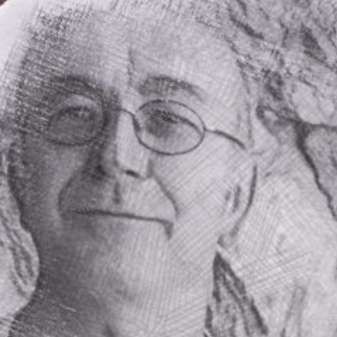Coincidence can add resonance to timing. The day after enjoying BBC Radio 3’s Free Thinking discussion about the relevance and future of live classical music, I found myself at just the sort of event that could have informed the debate. The audience was, in the main, very young and comprised: portly, indoor boys with little evidence of recent brisk walks; nattily dressed, imaginatively coiffured couples; and people in costume, including one young man in articulated, plastic armour and a long blonde wig. What could possibly have occasioned such a gathering?
The weekend had seen the 25th anniversary celebrations of Square Enix’s role-playing video game Final Fantasy. This phenomenon comprises thirteen discrete games, although sequels raise the number of publications to 35. Music has always featured prominently. Nobuo Uematsu, for many years part of the franchise, composed much of it. More recently, Masashi Hamauzu has taken over the musical reins. He was present at this Edinburgh event and his introduction by conductor Arnie Roth caused an eruption of proportions only possible in cult audiences. The last time I experienced such an atmosphere was at a live performance of the BBC’s surreal comedy hit The Mighty Boosh. Unbridled enthusiasm and a sense of connectedness pervaded both audiences; mere presence seemed enough to generate smiles and conversation. I was delighted, as my own middle-age geekery does not extend to games and chatting to fans proved the best possible research.
The RSNO filled the large Edinburgh Playhouse stage. Behind them stood the National Youth Choir of Scotland, prepared with customary professionalism by Christopher Bell. They appeared to be singing in languages created for the fantasy worlds, although some of it had the feel of Latin; it wasn’t always easy to make out when orchestral blood was up. I had the feeling that the RSNO were really enjoying the evening. The nature and purpose of the theme-based music results in much of it being memorably melodic. While the evening’s heroes and heroines on the overhead screen faced a variety of threats, tonality was never menaced and it confidently absorbed the kind of dissonances which characterise the genre. I imagine that much of the music must have been very easy for an orchestra of this calibre and they delivered consistently winning performances across the evening. I was very impressed with Arnie Roth’s relaxed harnessing of animation and live orchestra. Initially presuming this to be quite a loose affair, I was amazed to note sword clashes highlighted by perfectly timed syncopations. Roth’s functional, unfussy conducting style was mirrored in his friendly, enthusiastic conversations with the audience. His association with Final Fantasy is considerable and he appeared really to love the games, stories and characters.
Much of the music was instrumental. However, Detroit-based singer-songwriter Susan Calloway made three appearances. Microphone in hand, her style was more musical theatre than classical. I found her calmly expressive with an impressive range. She dealt beautifully with lines which became more adventurously angular as the songs developed.
Roth was delighted to introduce local guitarist Simon Thacker, as it meant he could experience a couple of infrequently performed items. Playing from memory, with a vigilant eye on the conductor, Thacker captured the tender and rumbustious moods of “Dear Friends” and “Vamo’ alla Flamenco” respectively. The latter, which resembled a Gaspar Sanz/Luigi Boccherini mash-up, required some nifty rasgüeado strumming techniques.
I was intrigued by the visual vocabulary of the games. In addition to familiar anthropomorphic elements, such as clothed, bipedal lions, there appeared the confection of futuristic and historic ingredients favoured in fantasy landscapes: swords as weapons of choice, despite space-age technology; a flying Spanish galleon; flying motor bikes, bearing Aryan/Arthurian riders. Only occasional on-screen text hinted at the Japanese origin of the games.
Those concerned about who will replace the follicly challenged constituents of current classical audiences may well have been encouraged by this evening. Although not sold out like Final Fantasy’s Albert Hall event two evenings before, the concert was very well attended; the atmosphere was jubilant; audience response was unbridled (there was no wrong place in which to applaud); phones were on silent but many were being used to photo what must have been a historic event for fans. It’s difficult to say whether events such as this will recruit a new, regular concert hall audience. However, were this to be the case, then much of the credit should go to the eight orchestrators whose names flashed by during the “end credits”. If the thrill of a live symphony orchestra tempts people back then these backstage magicians deserve a little more limelight. Although I probably won’t seek out much of this music again, I thoroughly enjoyed this novel experience and salute the RSNO for their joyous approach to the event.


